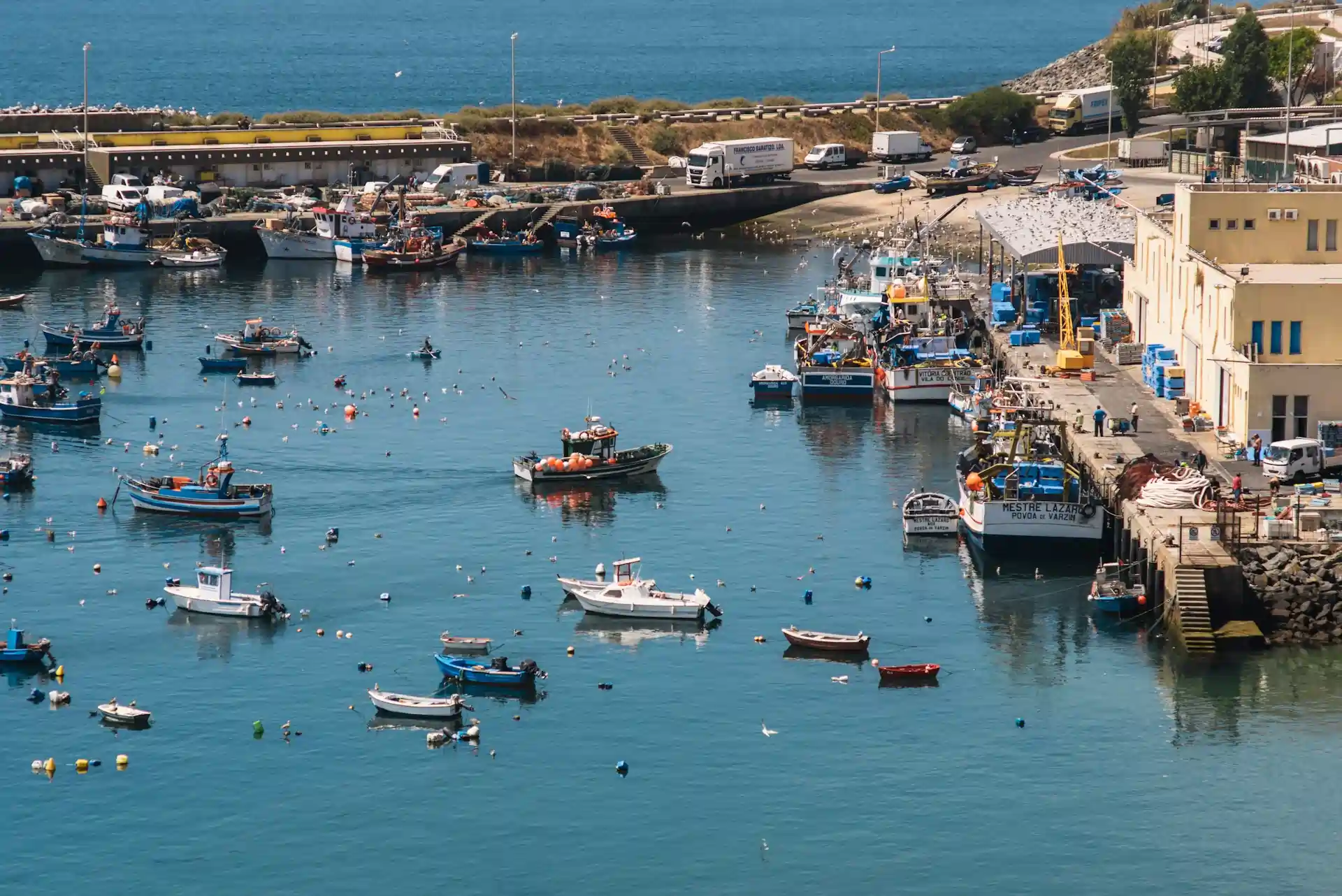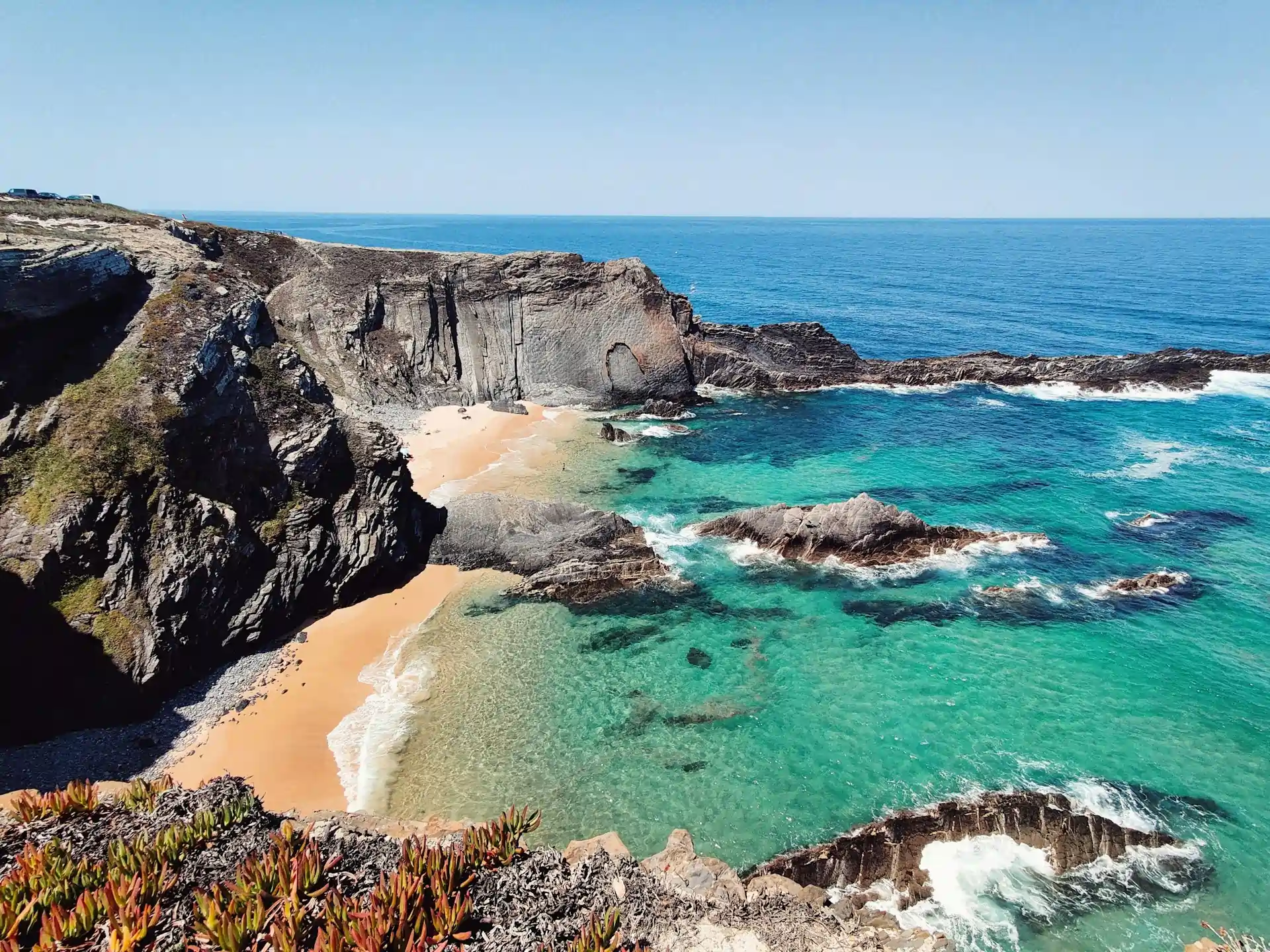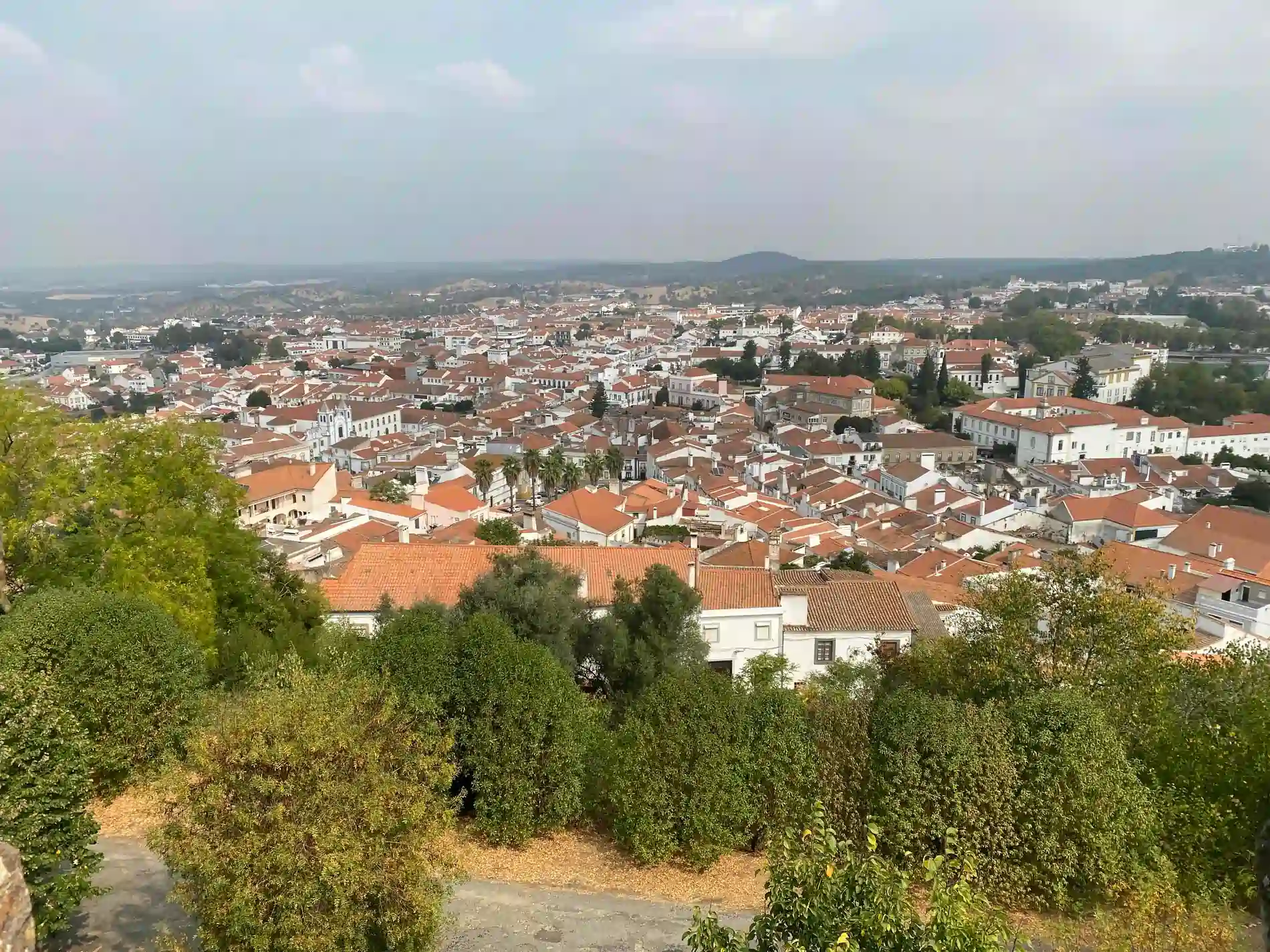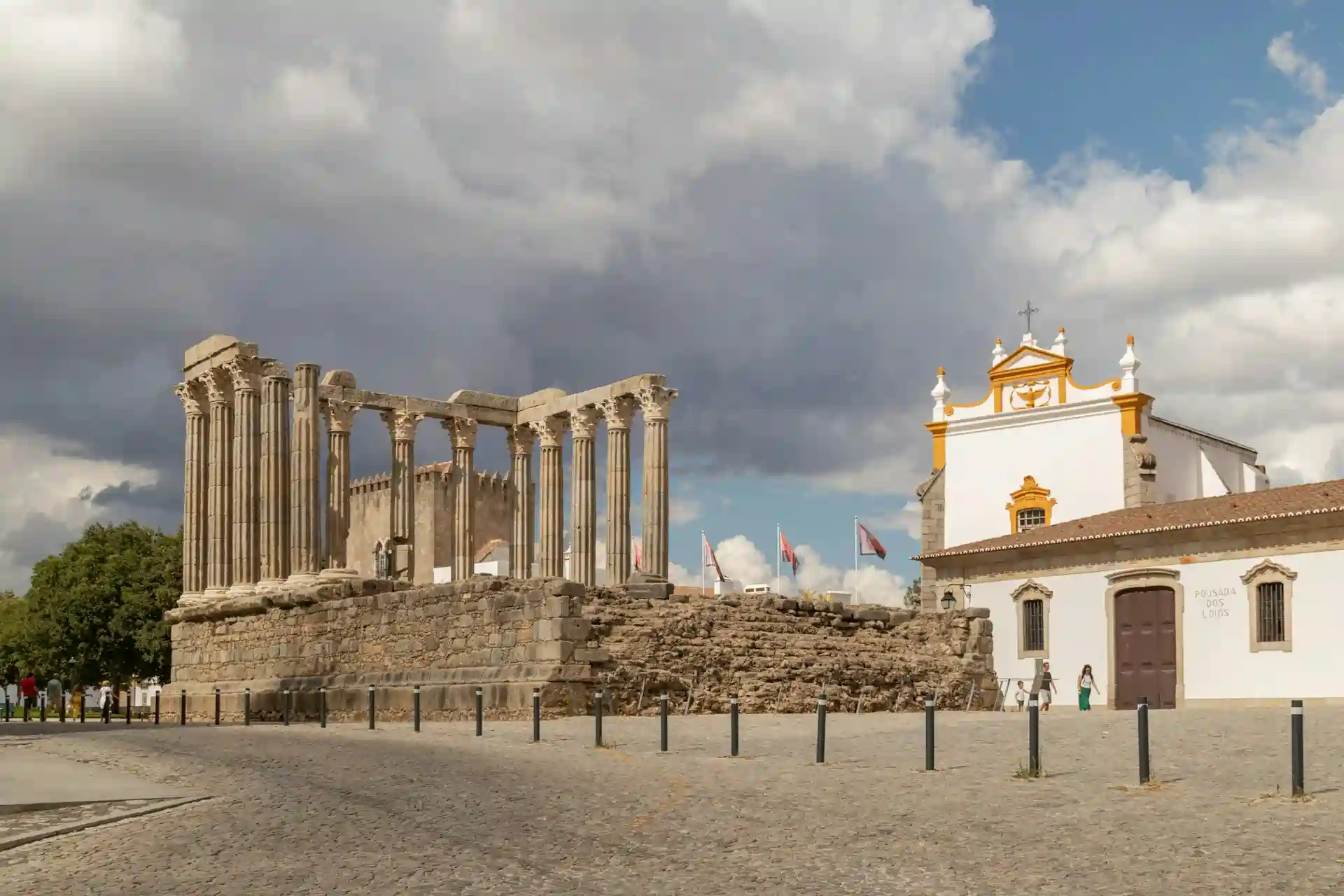
Top 10 Reasons to Visit Évora, Portugal in 2024
Évora - The Perfect Location
Situated in the heart of the Alentejo region, Évora is ideally located between Lisbon and Spain’s Estremadura. Its central position makes it a perfect base for exploring the stunning landscapes, rich history, and charming villages of Alentejo. Whether you’re traveling between the Algarve and northern Portugal or making a journey between Lisbon and Madrid, Évora is a must-visit destination. Stay for a few days to uncover its wonders and embrace the adventure, history, and serenity that Alentejo has to offer.
Évora – A UNESCO World Heritage Site
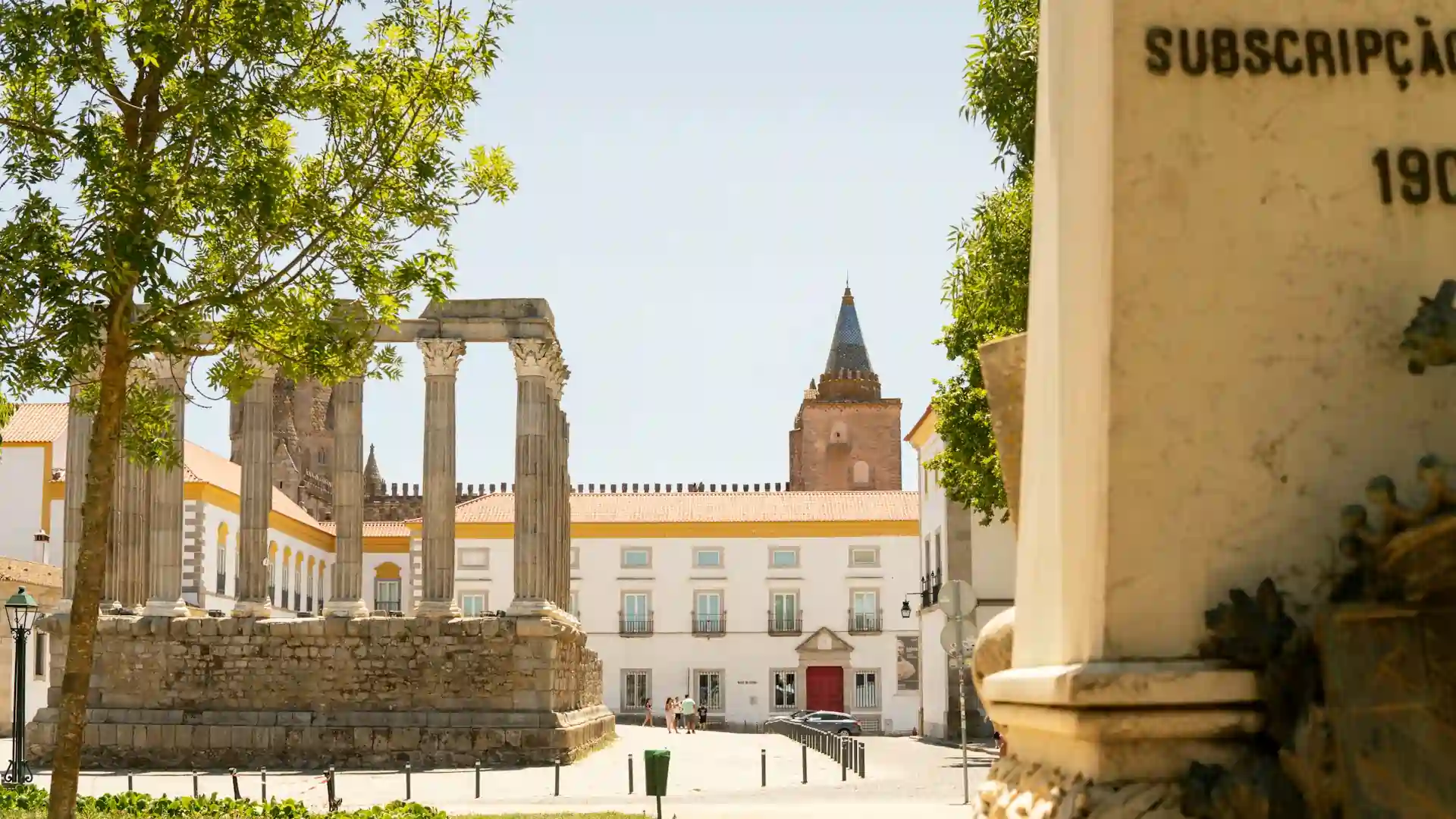
Recognized as a UNESCO World Heritage Site since 1986, Évora is often referred to as a “museum-city.” Its roots stretch back to Roman times, with its golden age occurring in the 16th century when Portuguese kings resided here. Évora’s unique architecture, with its iconic whitewashed houses, ornate balconies, and intricate tiles, makes it one of the best-preserved examples of Portuguese cities from this era. These features influenced the design of Brazilian cities like Salvador da Bahia.
UNESCO highlights the city’s historic wall, the impressive Água de Prata Aqueduct, and numerous medieval buildings, including cathedrals, convents, and palaces. A visit to Évora is a journey through centuries of Portuguese history.
Évora - A Hub of Culture
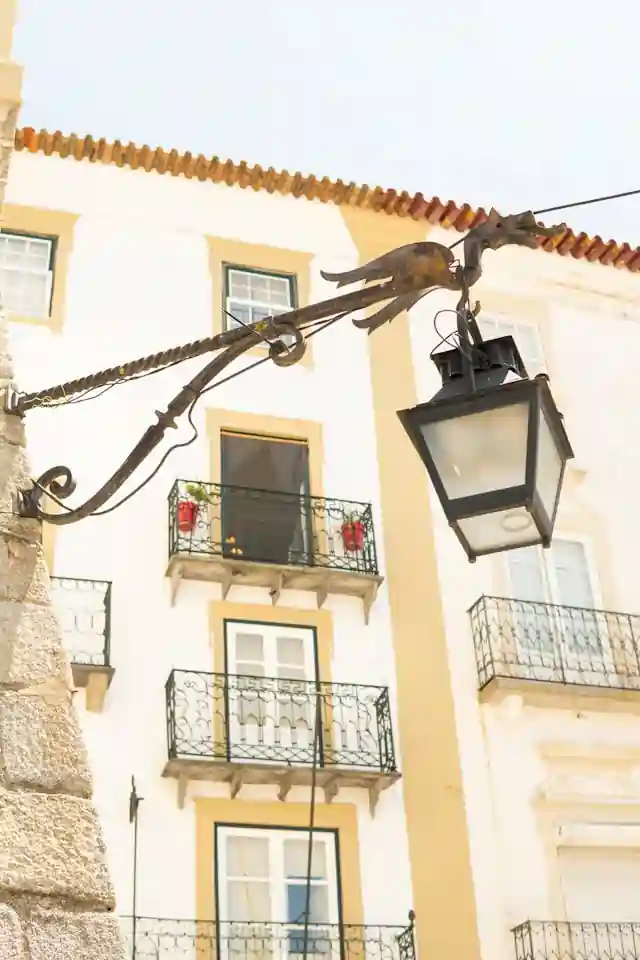
Évora’s cultural richness extends far beyond its historical roots. Its attractions, such as the Colégio do Espírito Santo at the University of Évora and the renowned Fresco Route, offer an immersive experience in the city’s baroque heritage. In recent years, new museums and cultural centers have emerged, making Évora a vibrant destination in any weather.
The city hosts various events at venues like the Teatro Garcia de Resende and the Eugénio de Almeida Foundation, where art, theatre, and classical music are frequently celebrated. Visitors should not miss the permanent and rotating exhibits at the Évora Museum, the Sacred Art Museum at Évora Cathedral, and the Fundação Eugénio de Almeida’s prestigious exhibitions.
Évora - A Food and Wine Paradise
One of Évora’s top attractions is its gastronomy, which showcases the rich culinary traditions of the Alentejo region, renowned for its Mediterranean influence. Dining in Évora is an experience that brings together bold flavors and local ingredients such as coriander, mint, garlic, and olive oil.
Popular dishes include lamb stew, açorda (a traditional bread soup), Alentejo-style gazpacho, and game dishes. Finish your meal with local desserts like queijadas de Évora, sericaia, or the egg-based sweets that are an Alentejo specialty.
Évora is also a wine lover’s dream, as the Alentejo region is home to five of Portugal’s premier wine-producing areas. Enjoy the region’s acclaimed wines at a local wine bar or take a journey along the Alentejo Wine Route, visiting vineyards that produce iconic wines like Pêra Manca and Cartuxa.
Évora - Megalithic Monuments
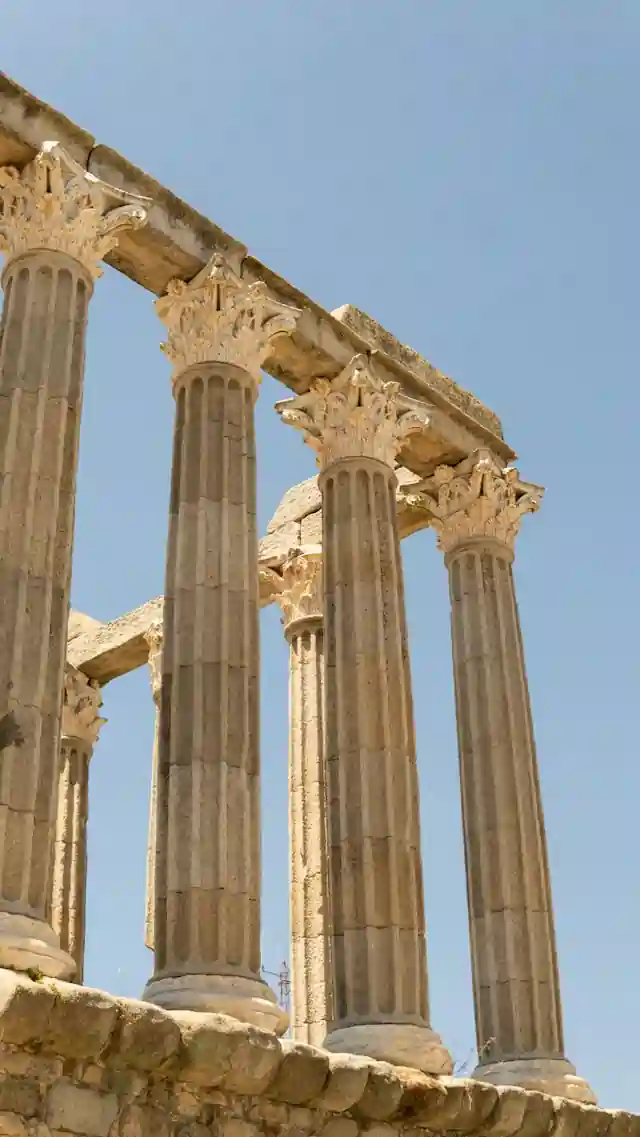
Steeped in history, Évora is often called the “Capital of Iberian Megaliths.” The region has been inhabited since prehistoric times, and visitors can explore some of Europe’s most significant megalithic sites. Highlights include the Anta Grande do Zambujeiro dolmen, the Cromeleque dos Almendres, and the Almendres Menhir. To better understand the significance of these ancient monuments, visit the Megalithica Ebora Interpretation Center, which provides valuable insight into the megalithic and Roman eras of Évora.
Évora - A Tranquil Escape
For those seeking peace and tranquility, Évora is an inviting destination. Its quiet streets, lined with historic buildings, provide the perfect setting for leisurely exploration. Whether strolling through the historic center with your family, enjoying a romantic getaway, or simply taking in the sights at your own pace, Évora offers a serene atmosphere. The slow rhythm of life in Alentejo encourages visitors to relax and savor the moment.
Évora - An Adventure Destination
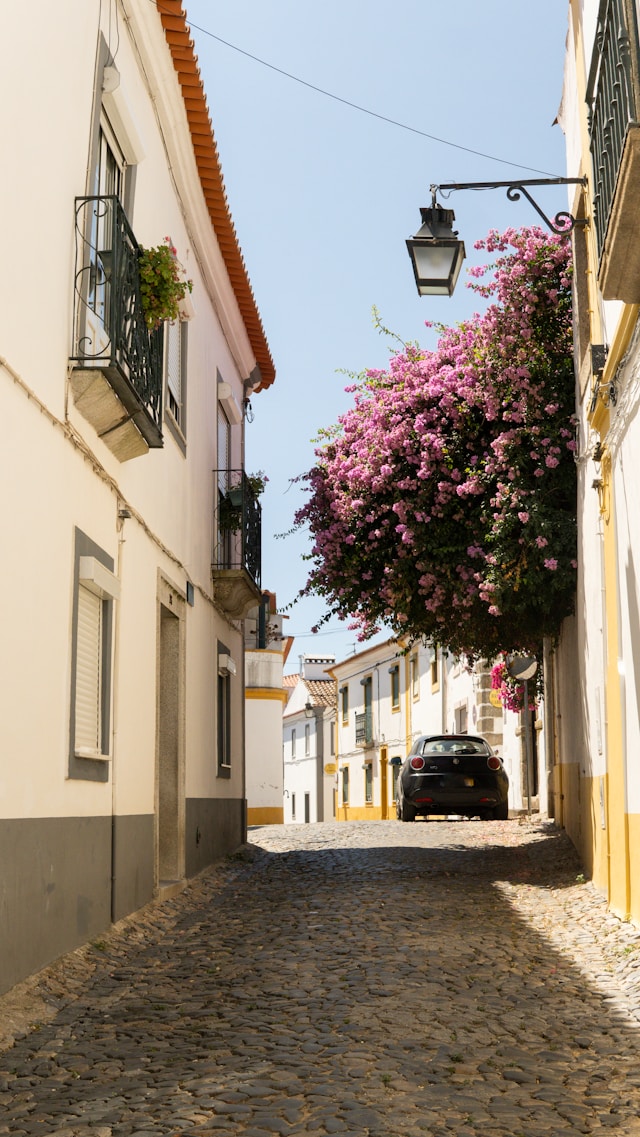
Adventurous travelers will be delighted by the range of activities available in and around Évora. Whether you’re looking to skydive at Évora’s airport, go karting, or explore the surrounding nature trails on foot or by bike, Évora offers plenty of adrenaline-pumping experiences. The region’s dams and lagoons also provide ample opportunities for water sports such as sailing, canoeing, and jet skiing.
For those looking to explore Alentejo’s countryside, orientation activities and nature hikes through olive groves and cork forests offer the perfect combination of adventure and natural beauty.
Évora - Discover Alentejo Handicrafts
Alentejo’s traditional crafts offer a unique glimpse into the region’s heritage. From clay pottery and wrought iron items to cork and leather goods, Évora’s handicrafts reflect centuries-old traditions. Many shops and the Museu do Artesanato e do Design de Évora offer exquisite examples of local craftsmanship, ranging from lace and embroidery to finely crafted furniture. These handmade items make for perfect souvenirs, blending the old with the new, and showcasing the artisanal talents of the region.
Évora - Nature at Its Best
Beyond Évora’s city limits, visitors will find endless natural beauty. The rolling plains of Alentejo are home to vineyards, olive trees, and cork oaks that stretch to the horizon. Évora is an ideal starting point for exploring the region’s countryside, whether by hot air balloon, trekking, or birdwatching.
Don’t miss the chance to visit the Dark Sky Alqueva Reserve, the world’s first Starlight Tourism Destination, perfect for stargazing far from city lights. For a closer look at Alentejo’s wildlife, birdwatching tours offer sightings of ducks, storks, and various birds of prey.
Évora - Lively Nightlife
As a university town, Évora has a vibrant nightlife scene that caters to both locals and visitors. During the school year, students bring an energetic atmosphere to the city, filling bars and clubs during the week. On weekends, the party continues into the night, especially during the warm summer months when outdoor terraces are perfect for enjoying a refreshing drink under the stars.
Wine bars and local cafes come alive in the evenings, offering a relaxed ambiance for enjoying some of Alentejo’s finest wines. Whether you’re looking for lively entertainment or a quiet night sipping wine, Évora’s nightlife has something for everyone.
alentejo evora